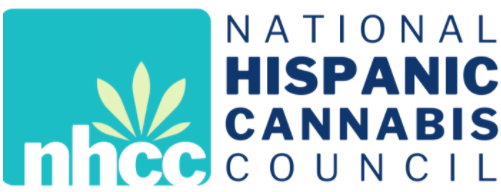The Cannabis Place
Q&A Session with the National Hispanic Cannabis Council
Question 1: When did you first start in the Legal Cannabis Industry and why?
In late 2020 and early 2021, I visited 50 non-MSO recreation and medical dispensaries in five states on the east and west coast. I wanted to learn more about dispensaries and best practices across the industry, my trip opened my eyes to a different reality. Forty nine of the dispensaries were owned by white males and one was owned by a white female, not one owner looked like me or shared a similar background, first generation Latino who grew up in public housing, Spanish was my first language and my dad spent most of my youth incarcerated. None of these dispensary owners had been stopped and frisked hundreds of times for no other reason than just because they lived in an area with historically high rates of arrests and enforcement from over policing. Yet they were now engaged in an industry that seemed to exclude us. My trip left me sad but determined to enter the cannabis market so that people who look like me , who came from the struggle of the streets, who were collateral damage in the war on drugs could have a chance and an example to follow.
Question 2: What kind of advice would you give to people looking to get into the industry?
First don’t give up, as Latinos we come from a strong lineage of Mayas, Aztecs, Chibchas, Incas, Taínos and so many other warrior people, find your inner strength. Second, I would say educate yourself, read the regulations and rules, follow organizations that educate you, don’t count on what you hear here and there, learn the details for yourself so you can have knowledge , knowledge is the ultimate power, then teach someone else, each one teach one so we can collectively grow our voice and representation in this cannabis industry.
Question 3: How do you feel about the current application fees for licensing?
The application for licensing fees are interesting in the New York and New Jersey market, at the state level they are reasonable in certain ways because they are not a major cost, but at the municipal level the fees can be 5 -10 times or even higher, thus defeating the purpose of low costs at the state level and limiting access to those who are socioeconomically disadvantaged.
Question 4: How do you think cannabis has been received by the Hispanic community?
It’s interesting to say the least, using my Familia as an example when I was growing up cannabis use was seen as a thing that street “chusma” or hoodlums did, but now I have these same people using CBD and THC products for different ailments, depression and chronic pain. Because it’s becoming so main stream I think that it’s becoming more acceptable amongst our elders and will be very normal in the near future at least in my Familia.
Question 5: How would you say discrimination manifests itself in the industry?
I have seen discrimination in the cannabis industry in two key areas, access to capital and the real estate market. It takes money to make money so if you grew up poor, without generational wealth, no rich uncle, no hedge fund connections or oligarchs to call on, how do you raise funds to have the millions that are needed to launch a dispensary or grow? Next and along the same lines is real estate, a lot of landlords won’t lease to cannabis business but unfortunately our experience has been that again a predatory market exists where cannabis rates are 2 to 10 times the normal lease rates for the area. The other option is to buy a commercial parcel which brings us back to issue #1 – Access to capital.
Question 6: What is some advice you would give to young Hispanic entrepreneurs?
Fuerza y paciencia! Cannabis is ultimately a business that is highly regulated, but it’s still a business, so create your business plan, build your social media following, develop your SOPs and read your state’s cannabis legislation and regulations so that you have a clear understanding of the rules of the game.
Question 7: What is your vision of what this industry could potentially become?
I am ever the optimist, I see the Latino community growing in the legal cannabis industry as entrepreneurs, c-suite members and as leaders in the industry bringing our unique insight and sabor to the industry while creating opportunities for generational wealth for our community.
